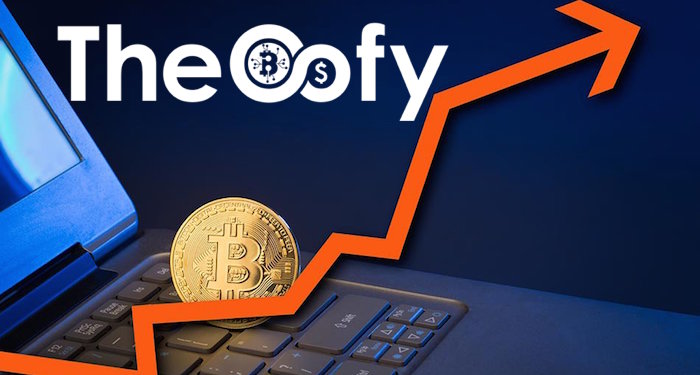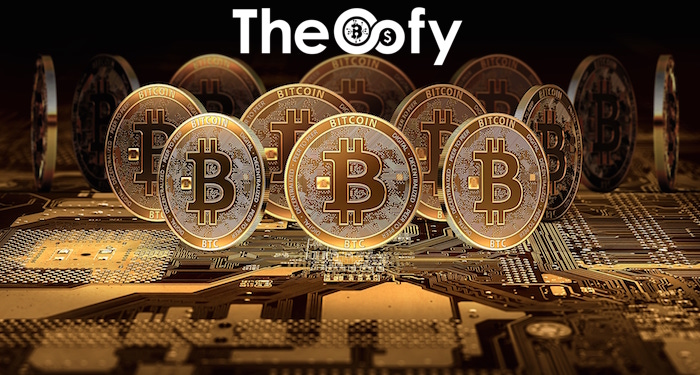If you paid attention to the tech-business news towards the ending of last year and the beginning of this year, you surely would have heard of the cryptocurrency; bitcoin. It appreciated so much compared to the dollar, that at a time last year, just one bitcoin exchanged for over $10,000. Well, if you didn’t pay attention to the news, there is no need to fret; you can catch up on all you have to know about this digital cryptocurrency.
Table of Contents
What Is Bitcoin?
Bitcoin is a digital currency. Just as normal fiat currencies are used for transactions, bitcoin is accepted by some organizations as a means of payment. It was developed about 10years and it has gradually become acceptable in some countries and has also set a benchmark for other cryptocurrencies.
Why was there a need for a digital currency? Well, no one can certainly say what prompted the developer or inventor for inventing the currency, but we may draw some assumptions from what Bitcoin offers. Bitcoin makes international transactions are bit cheaper and easier, the international fees for using cards are eliminated and bitcoin serves as the basis for the transaction.
Bitcoin is generated through mining. This coin mining is carried out by miners with computers powerful enough to handle powerful mathematical computations involved in mining for coins. The development of bitcoin was based on military cryptography hence the need for the mining using mathematical computations. The transactions are done using bitcoin also follow the same pattern; the transactions are carried out via decentralized computer systems, and the transaction is then recorded on a public blockchain.
Bitcoin transactions are carried out using addresses or wallets. These wallets also change with every transaction, making it impossible to trace a bitcoin payment. Every customer that wants to make transactions using bitcoin has a private spend key, that authorizes him to make transactions from his bitcoin wallet, the business or individual to be paid also has a wallet address that is given to the customer for payment to be transferred to that address. You can generate as many keys as you want. Once transactions are made to a wallet though you need to keep the address of the wallet safe. If lost, your coins will be lost forever.
Why Should You Consider Using Bitcoin?
Bitcoin is growing in acceptability. Some websites allow payments to be made in bitcoin now, and it has received the backing of most countries’ governments. This is one reason why you should consider using this digital currency.
Using bitcoin during transactions helps you remain anonymous. You do not have to fear identity theft over the internet. Yes, your coins can be hacked and stolen if stored in an online wallet, but if stored in an offline wallet such as a printed piece of paper, you are secure against hacking.
With bitcoin, you don’t have to worry about international or foreign rates when making international transactions. Your transactions whether local or international are free of the extra charges associated with card transactions most of the time. Coinbase; a site that supports bitcoin transactions allows free transactions up to $1,000,000 and then 1% on every transaction. Still, this is relatively low to card charges.
Finally, the transactions are highly secure and private. As stated earlier, storing your coins in an offline wallet is the surest way to prevent hacking. The decentralized system of operation and the blockchain technology also makes the digital transaction a lot more secure.

Pros and Cons of Bitcoin
Bitcoin: The Pros and Cons for Consumers and Merchants
Between the mysterious security dilemmas underway at Mt. Gox Bitcoin exchange, the cyber battles over Bitcoin black markets and the recent arrest of the Bitcoin Foundation’s vice chairman, the media is now ablaze with fear-inspiring virtual currency stories. However, the hype has overshadowed the questions concerning most consumers and businesses: What is Bitcoin? What are the advantages and disadvantages of using it? How do they stack up with more common payment methods?
Here we’ll illuminate the key characteristics, pros and cons of Bitcoin that you need to know about.
What the heck is Bitcoin?
Bitcoin is the world’s “first decentralized digital currency,” according to bitcoin.org. It was launched in 2009 and it has several features that make it different from common forms of payment:
First, Bitcoin is considered a ‘cryptocurrency’ because it uses military-grade cryptography to secure transactions.
Second, Bitcoin payment processing is conducted through a private network of computers, and every transaction is recorded in a public record known as the “blockchain.”
Third, new Bitcoins are only generated to pay “Bitcoin miners”—the people whose computers participate in this network and complete complex mathematical tasks to approve Bitcoin transactions.
Last, Bitcoin has no government affiliation, central authority or banks. It’s based strictly on peer-to-peer technology.
How do I get them and use them?
If you’re tech savvy and have some very powerful computers around, you can try bitcoin mining. If you’re like most people, you download a bitcoin wallet on your computer or smartphone, trade dollars for Bitcoins on an exchange and then use your wallet to spend bitcoins.

Consumers: The Pros and Cons
Bitcoins protect your identity and money. You do not have to disclose personal identity information in a bitcoin transaction, much like cash, nor do you have to provide a credit card number that could be stolen. You’ll use anonymous Bitcoin addresses that change with every transaction.
You can send and receive payments at a very low cost or none at all, and for international payments, you never have to pay a foreign transaction or exchange fee. This can be a big advantage while travelling.
However, transactions are irreversible—they can only be refunded by the person receiving the funds, so there’s no recourse if it goes to the wrong address or a sketchy vendor. You can’t get liability protection for bitcoin use. If your wallet or another bitcoin fund is hacked, you probably have to eat the loss.
Finally, if you keep Bitcoins, you have to deal with their volatility. To get a sense of just how much Bitcoin can fluctuate, check out Coinbase’s charts. In the last 3 months, the price of Bitcoins has ranged from over $1100 USD to under $600. Yes, you have the chance to profit through speculation, but you could also lose a lot of money. Also, Bitcoin is not that popular yet—while Overstock.com, TigerDirect, Etsy and some other big names have come aboard, most major retailers have not.
Bitcoins have more similarities with cash than credit cards. With credit cards, you get liability protection, warranty extensions, reward points and the convenience of knowing that your card will be accepted just about anywhere. However, with credit cards you risk late fees, interested charges, foreign transaction fees and effects on your credit score.
Businesses: The Pros and Cons
First and foremost, you’re going to save money. If you use a provider like Coinbase to process transactions, the first $1 million will be free and then you’ll pay 1% on all transactions. That’s a significant savings compared to the 3%-4% transaction fee for credit cards.
Many exchanges will instantly convert Bitcoin payments to minimize the risks of volatility. In addition, with Bitcoin you never need to worry about consumer chargebacks, PCI compliance and hackers going after stored credit cards. Most Bitcoin merchants use a simple tablet or smartphone app to process payments—you don’t need a pricey POS system and hardware.
You must, however, establish a very clear policy for returns and refunds. You should base the return amount on the item’s original dollar price rather than bitcoin price to avoid exposing yourself to Bitcoin’s volatility. / Yahoo Finance
The Bottom Line
Keep up to date with development of Bitcoin, and don’t let sensationalized headlines cloud a rational assessment of the cryptocurrency. Having a mix of payment methods at your disposable is ideal. As a consumer, consider using Bitcoin for digital payments when you want to minimize the risk of identity theft and stolen card information, or avoid foreign transaction fees. As a merchant, consider making Bitcoin an option to provide your customers with choice, save on processing fees and defend yourself from hackers.
Tags: what is bitcoin mining, what is bitcoin wikipedia, what is bitcoin and how does it work, how to get bitcoins, what is bitcoin used for, how to use bitcoin, bitcoin definition, bitcoin account




